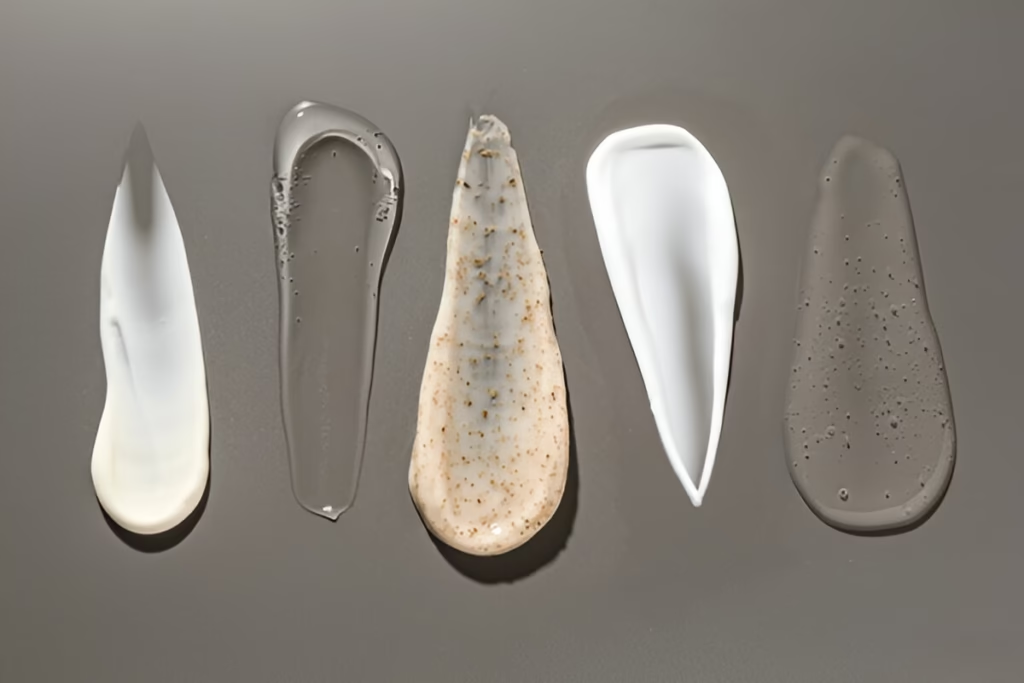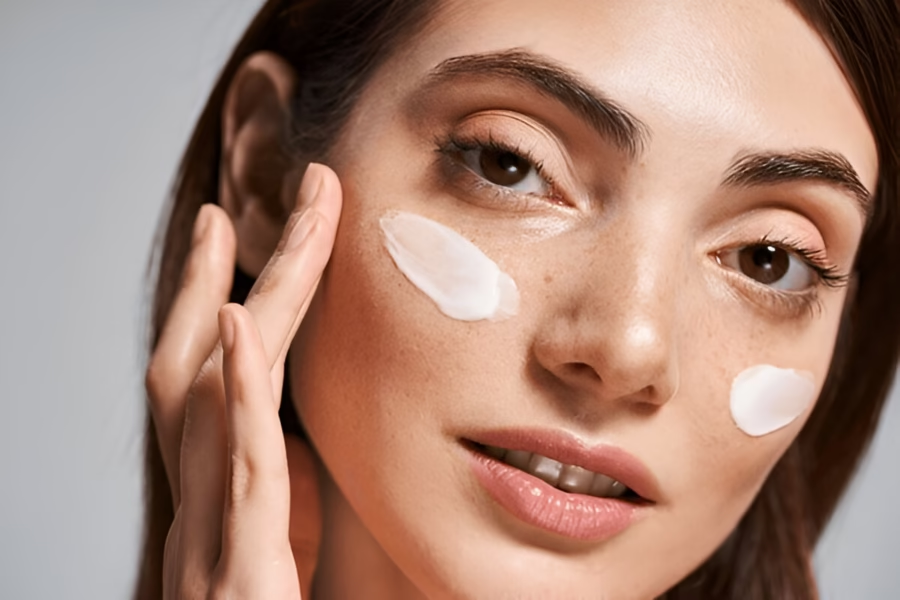It’s a common misconception that oily skin doesn’t need hydration. People with oily skin often sidestep moisturizers, worrying that adding more moisture might escalate greasiness. But this belief is incorrect—hydration is vital for oily and dry skin. It plays an integral role in maintaining a healthy, balanced complexion. Let’s dive into the science of hydration for oily skin and explore why it’s an essential part of your skincare routine.
In This Article
- What Exactly Is Hydration, and Why Is It Important for Oily Skin?
- Can Oily Skin Become Dehydrated?
- Signs of Dehydrated Oily Skin
- The Science of Hydration for Oily Skin
- How to Hydrate Oily Skin Effectively
- Ammore’s Pro Tip
- Common Mistakes to Avoid When Hydrating Oily Skin
- Final Thoughts
What Exactly Is Hydration, and Why Is It Important for Oily Skin?
Hydration refers to delivering water to the skin, which is distinct from moisturization—trapping moisture to prevent dryness, Since skin is composed of approximately 64% water, maintaining an optimal hydration level is crucial. When your skin is well-hydrated, it looks plump, smooth, and healthy. Dehydrated skin, on the other hand, can appear dull, tight, and irritated—whether it’s oily or dry.
For those with oily skin, it’s especially important to recognize that dehydration can trigger more oil production. When the skin lacks sufficient water, it compensates by overproducing sebum (the skin’s natural oil). Instead of fighting oil with harsh, stripping products, it’s far better to keep your skin hydrated in a balanced way.
Can Oily Skin Become Dehydrated?
Yes, oily skin can absolutely become dehydrated, Common causes include overuse of harsh skincare products, environmental factors, and even your diet. Let’s take a closer look at the reasons behind dehydration in oily skin:
- Over-Cleansing:
Many people with oily skin use potent cleansers or overwash their face, thinking this will control oil production. However, these products often strip the skin of essential moisture, leaving it dry and tight. To compensate, your skin produces even more oil. - Environmental Factors:
Cold weather, low humidity, and exposure to air conditioning or heating can all sap moisture from your skin. Even if your skin is naturally oily, these environmental stressors can lead to dehydration. - Diet:
Not drinking enough water or consuming foods high in salt or sugar can also impact your skin’s hydration levels. These factors reduce the body’s ability to retain water, disrupting the skin’s moisture balance. - Harsh Skincare Products:
Using alcohol-based toners, rough exfoliators, or other harsh products can strip your skin’s natural moisture barrier, leaving it vulnerable to dehydration.
Identifying Dehydrated Oily Skin
Recognizing dehydrated skin isn’t always straightforward, especially if your skin is also oily, Here are some signs to watch for:
- Tightness: Your skin feels taut or uncomfortable, especially after cleansing.
- Flakiness: Dehydrated oily skin can sometimes flake or peel, particularly around the nose, chin, or forehead.
- Excess Shine: Although oily skin is naturally shiny, dehydration can make it look even shinier as your skin overproduces oil to compensate for a lack of water.
- Enlarged Pores: Dehydration can cause pores to appear larger as oil production increases.
- Rough Texture: Your skin may feel uneven or bumpy despite being oily.
The Science Behind Hydration for Oily Skin
Our skin has a natural barrier called the stratum corneum, This barrier helps retain moisture and protects the skin from environmental damage. It’s made of lipids (fats) and proteins that hold skin cells together. When the skin becomes dehydrated, this barrier weakens, leading to increased moisture loss.
To compensate, sebaceous glands ramp up oil production, creating a protective layer to prevent further moisture loss. Unfortunately, this can lead to clogged pores and breakouts. In essence, dehydration prompts your skin to produce more oil, exacerbating the very problem you’re trying to control.
How to Hydrate Oily Skin Properly
The good news is that you can hydrate oily skin effectively without making it greasier, The secret lies in finding the right balance and using water-based products that are lightweight and non-comedogenic. Here are some tips:
- Choose Lightweight, Water-Based Moisturizers:
Opt for moisturizers labeled “oil-free” or “non-comedogenic.” Gel-based moisturizers or those with hyaluronic acid work wonders for oily skin, delivering hydration without clogging pores. - Use Hydrating Toners:
Swap alcohol-based toners for hydrating ones with soothing ingredients like aloe vera or glycerin, These toners help replenish water levels and restore balance to your skin. - Incorporate Hyaluronic Acid:
Hyaluronic acid is a game-changer for all skin types, including oily skin. It’s a humectant, meaning it attracts water to the skin. Best of all, it won’t clog pores or add oil. - Don’t Skip Sunscreen:
Oily skin still needs protection from the sun. UV rays can dehydrate your skin, leading to increased oil production. Look for a non-comedogenic sunscreen with a gel or water-based formula. - Stay Hydrated Internally:
Hydration starts from within, Drink plenty of water throughout the day to keep your skin healthy and plump. Eating water-rich foods like cucumber and watermelon can also help. - Try Hydrating Masks:
Add hydrating masks to your routine once or twice a week. Look for masks containing ingredients like green tea, cucumber, or clay with added hydration.

Ammore’s Pro Tip
Layering Products for Maximum Hydration: Start with a gentle, hydrating cleanser, followed by a toner to restore balance, Next, apply a serum with hydrating ingredients like hyaluronic acid or glycerin. Finally, seal everything in with a lightweight, water-based moisturizer.
Avoiding Common Mistakes When Hydrating Oily Skin
Even though hydration is essential for oily skin, it’s easy to make mistakes. Here’s what to avoid:
- Over-Moisturizing:
Using too much moisturizer can clog your pores and cause breakouts. Stick to a pea-sized amount and apply evenly. - Using Heavy Creams:
Thick, rich creams are often too heavy for oily skin. Choose lightweight, gel-based products instead. - Skipping Hydration:
Don’t forgo hydrating products just because your skin is oily. Hydration is essential for all skin types.
Final Thoughts
Hydrating oily skin is all about balance. By adding the right amount of moisture without overwhelming your skin with excess oil, you can achieve a healthy, glowing complexion. Hydration isn’t the same as greasiness—it’s about giving your skin the water it needs to function properly.
When your skin is well-hydrated, it becomes less oily, more balanced, and less prone to breakouts. So the next time you think about skipping your moisturizer, remember: hydration is your oily skin’s best friend.
To Explore more about oily skin hydration and see what other says about it you can visit here.
If you loved these tips for the hydration of oily skin, don’t forget to comment below with your suggestions, experiences, or feedback! Be sure to share this post on your social media platforms and spread the sparkle! ✨ Let’s make the world Glow together! 🌟





